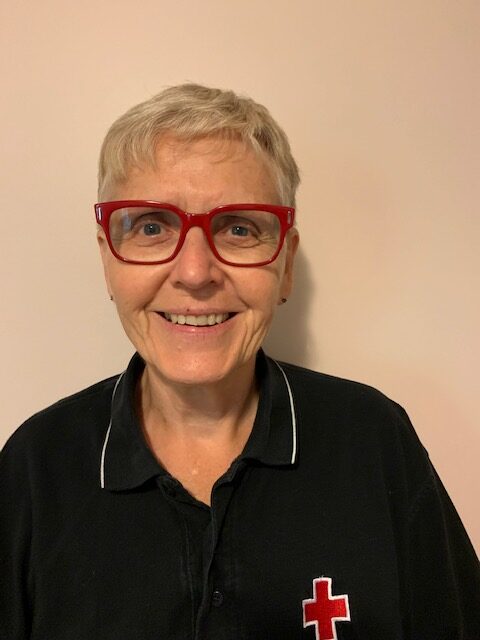For decades, whenever there’s been an emergency forcing people from their homes, there’s a good chance Castlegar’s Deb Chmara was involved with the response. She has responded to disasters locally, provincially, and internationally (and was recognized in 2019 as the Public Lifeline Volunteer of the Year) but recently decided to step back from those roles.
What groups are you retiring from?
Two groups do emergency services for evacuees in BC. One is the Emergency Support Services, which is the provincial government program. The other is the Canadian Red Cross. I have been with both organizations a very long time.
I have stepped down from the leadership within the local area, but I’m maintaining my credentials at least for a certain period of time, so if they need me or want a little bit of backup or there’s something they want from me, I’m still available.
How did you first get involved with them?
As of this April, I’ve been 54 years with the Canadian Red Cross as a volunteer. Thirty-eighty of those years were in emergency management. So doing exactly the same thing we’re talking about now. The Red Cross was responsible for emergency response for evacuees way, way back. That’s how I got started.
When the provincial government developed Emergency Support Services, that was an automatic to go into that. I can track it back at least 25 years with them. In 2004, I signed on as the team lead and we actually formed formally a team here in Castlegar. Up to that point we were a very fledgling group of people, but then the city made it a part of their emergency management plan. So it’s been 17 or 18 years in that position.
What motivated you?
I just loved doing it. The people you’re working with in terms of volunteers are superb. There aren’t too many people I’ve met in all of those years I would say I didn’t want to make friends with. They were just really good people.
The staff people for both the provincial government and Red Cross over those years were very supportive as well. As far as the actual clients, the evacuees, there is nothing more rewarding than seeing someone somebody who’s come in distraught and concerned about what’s going to happen in the next 24 hours, and what are we doing to do? We don’t have a house, where do we go? And knowing that when they left you, they had the basic services of accommodation, food, clothing if it was needed, they got medical or first aid support. So it’s very rewarding personally in terms of dealing with evacuees.
In the beginning, we never dreamed we would have the size of emergencies that we have. Gradually, the number of evacuations for a variety of reasons, primarily flood and fire, began to grow.
During that time with the Canadian Red Cross I also did international responses. I’ve seen everything from single-family fires to major hurricanes and earthquake responses.
Do any of them particularly stand out?
One would be the Kelowna wildfires in 2003, because that was a real turning point for emergency management in BC. The biggest one you have closest to home is going to stick with you for a while. But every one is totally different. Nothing is the same from one to the next. Even the way you set up a reception centre or shelter. The volunteers have to be trained and competent in a baseline of information and tasks. They have to be very flexible and good at problem solving.
Internationally where did you travel?
After the 2004 tsunami, I went with the Red Cross to Sri Lanka. The typhoon through the Philippines a few years ago, I went with the Red Cross to that one. A lot of my missions were dealing with people in the latter stages. The main part of the disaster is over when you come in, and now you have to look at the second stage. I’ve done American ones as well. I was out for about five or six different responses. That was always initial response.
It might surprise people to know this was not your full-time job.
Yes. I was a teacher for 35 years in the Castlegar district and I also taught in the Yukon.
What are your retirement plans?
That’s what I’m trying to resolve! [Laughs] I don’t know what to do with my time. But everybody assures me that given time I’ll find something. I’m active with the Castlegar Rotary Club and a few other things within the community. I’ll continue with those because I believe in community service and supporting others. But in terms of my own personal life, I haven’t set down what that’s going to be.
Anything else you’d like to add?
I really want to thank the many people in Castlegar and the West Kootenay I worked with. Team members and staff people in particular. But the ones who need the biggest kudos are the Castlegar Fire Department because they have just been phenomenal in their support over the years. It made such a difference when we were connected with them in terms of the way the team was able to develop and grow and become what it is today.
And my volunteers. There are so many out there. They are struggling with a new program from the government, a new online version that has required hours of extra work. They’re hanging in there and they’re going to be ready. They’re going to do their best. I know that best will be pretty darn good. It’s been a wonderful experience.






